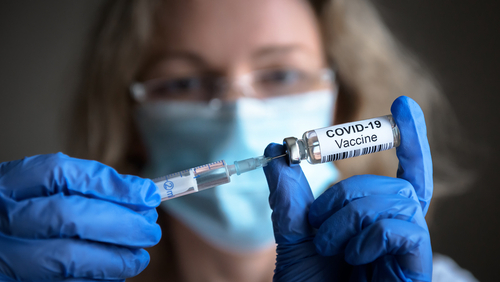
2020 will go down as one of the most shocking years in history, and its calamities are bleeding into 2021 as the COVID-19 virus continues to spread across the globe, severely infecting people on all continents.
As the pandemic raged, countries around the world announced total lockdowns. The movement of people and goods was restricted, shops were shuttered, businesses and schools were closed. However, for months, doctors have been toiling to develop a solution—the COVID-19 vaccine—and produce a cure for this deadly disease.
After a number of failed trials, at least two vaccines have been approved, and vaccinations have begun. However, the struggle does not end with the arrival of the COVID-19 vaccine as there are many factors at play.
One of the biggest questions is how employees can be quickly trained to deliver the COVID-19 vaccine as more segments of the population are deemed eligible to receive the shot (or shots as two of the approved vaccines require two shots within a certain number of weeks). There will be a tremendous need to mobilize and train (or retrain) a substantial workforce to dispense the vaccines as quickly as possible. There also will be a need to educate people who have not been vaccinated in a while, both on the benefits of the vaccine and potential side effects.
Artificial intelligence (AI) continues to play a significant role in business, medicine/healthcare, and training (AI Technology Trends). According to Forbes, a drug recently was developed using AI; it has reached clinical trials with humans to treat patients with obsessive-compulsive disorder. Indeed, AI may provide a solution when it comes to training on dispensing COVID-19 vaccines as it offers on-demand expert answers to questions or identifies resources such as videos or tips/best practices.
Who Needs to Be Trained?
The entire COVID-19 vaccinator workforce must get proper training and experience. This will keep the individuals who have yet to receive the vaccine protected and safe. Moreover, it will boost public morale and confidence about the COVID-19 vaccine’s authenticity and effectiveness.
Workers who need to be trained include:
- Registered healthcare practitioners (HCPs). These could be either new or returning to vaccinating after a considerable period.
- Trained and experienced vaccinators who are either registered HPCs or unregistered healthcare support workers (HCSWs). They also must themselves be vaccinated within one year.
- All the vaccination unregistered healthcare support workers who are new to immunization and have a specific role in administering the vaccine.
- The entire administrative support staff.
Two Types of Training
Both theoretical and practical training is required to train COVID-19 vaccinators.
Theoretical training includes:
E-Learning Program
A dedicated e-learning platform for the COVID-19 vaccine program has been set up by different countries and organizations, covering detailed topics. The program primarily consists of an in-depth knowledge session, assessment session, and vaccine-specific sessions. All of these are put together to come up with a reasonably detailed assessment. As additional COVID-19 vaccines become available, more vaccine-related sessions will be added.
Training Slide Set
There is a dedicated PHE COVID-19 vaccination program Webpage, where a training slide set for immunization trainers is available. The slide set covers every aspect related to the COVID-19 vaccine program. Trainers must select a side that matches the background and experience of the health workers they currently are assisting. In the slide set, individuals must add a role they are inclined to take up in the COVID-19 vaccine program.
Although it is crucial to acquire theoretical skills before trying out skills on the job, theoretical knowledge will not help if you cannot use it in real-life scenarios. As such, practical training will help vaccinators develop clinical skills and boost their confidence in their ability to successfully immunize people.
Such training can include organized camps or training courses where individuals are taught on topics related to public health, safety norms while applying the practice, immunization programs, and vaccine safety communication with a focus on practical training on how to vaccinate. Learners can be taught how to apply vaccines using dummy models or via simulations, allowing practice without risk.
Holding a Bachelor’s degree in Technology and two years of work experience in a mobile app development company, Jason White focuses on making technology digestible to all. When he’s not writing and staying updated on the latest tech trends, you will find him answering on Quora while sipping coffee.




